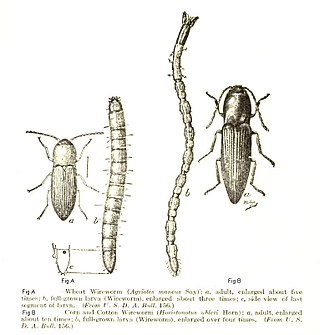
Elateridae or click beetles are a family of beetles. Other names include elaters, snapping beetles, spring beetles or skipjacks. This family was defined by William Elford Leach (1790–1836) in 1815. They are a cosmopolitan beetle family characterized by the unusual click mechanism they possess. There are a few other families of Elateroidea in which a few members have the same mechanism, but most elaterid subfamilies can click. A spine on the prosternum can be snapped into a corresponding notch on the mesosternum, producing a violent "click" that can bounce the beetle into the air. Clicking is mainly used to avoid predation, although it is also useful when the beetle is on its back and needs to right itself. There are about 9300 known species worldwide, and 965 valid species in North America.

The Elateroidea are a large superfamily of beetles. It contains the familiar click beetles, fireflies, and soldier beetles and their relatives. It consists of about 25,000 species.

Athous haemorrhoidalis is a species of European and Asian click beetles in the genus Athous. Several variations are recognized.

Alaus oculatus, commonly called the eastern eyed click beetle or eyed elater, is a species of click beetle.
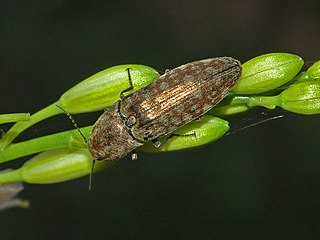
Actenicerus siaelandicus is a species of click beetle belonging to the family Elateridae, subfamily Dendrometrinae.

Agrypnus murinus is a species of click beetle belonging to the family Elateridae subfamily Agrypninae.
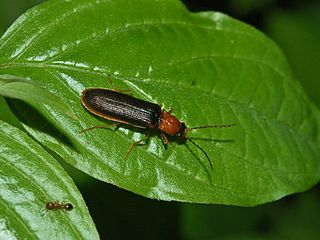
Denticollis linearis is a species of click beetle belonging to the family Elateridae subfamily Dendrometrinae.

Melanotus villosus is a species of beetle in the family Elateridae and the genus Melanotus.

Enicopus pilosus is a species of soft-winged flower beetles belonging to the family Melyridae, subfamily Dasytinae.

Eucnemidae, or false click beetles, are a family of elateroid beetles including about 1700 species distributed worldwide.

Hemicrepidius hirtus is a species of click beetle belonging to the family Elateridae.
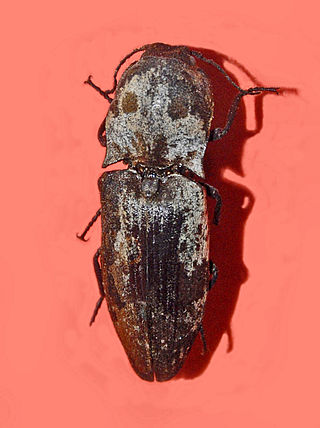
Calais parreysii is a species of click beetle belonging to the family Elateridae subfamily Agrypninae.

Lacon punctatus is a species of click beetle belonging to the family Elateridae subfamily Agrypninae.
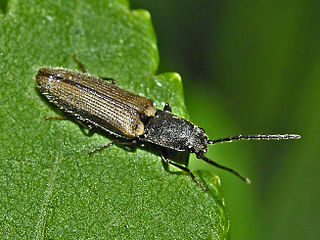
Athous bicolor is a species of click beetle.

Elater ferrugineus, the rusty click beetle, is a species of click beetle belonging to the family Elateridae.

Prosternon tessellatum, the chequered click beetle, is a species of click beetle belonging to the family Elateridae.
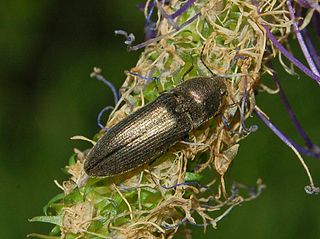
Cidnopus is a genus of click beetle belonging to the family Elateridae subfamily Dendrometrinae.

Ctenicera virens is a species of click beetles.
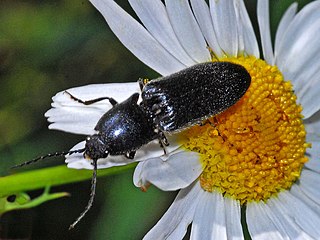
Megathous nigerrimus is a species of click beetles in the family Elateridae.
Melanotus punctosus, is a species of click beetle found in India, Sri Lanka, Pakistan, and Hawaii.




















